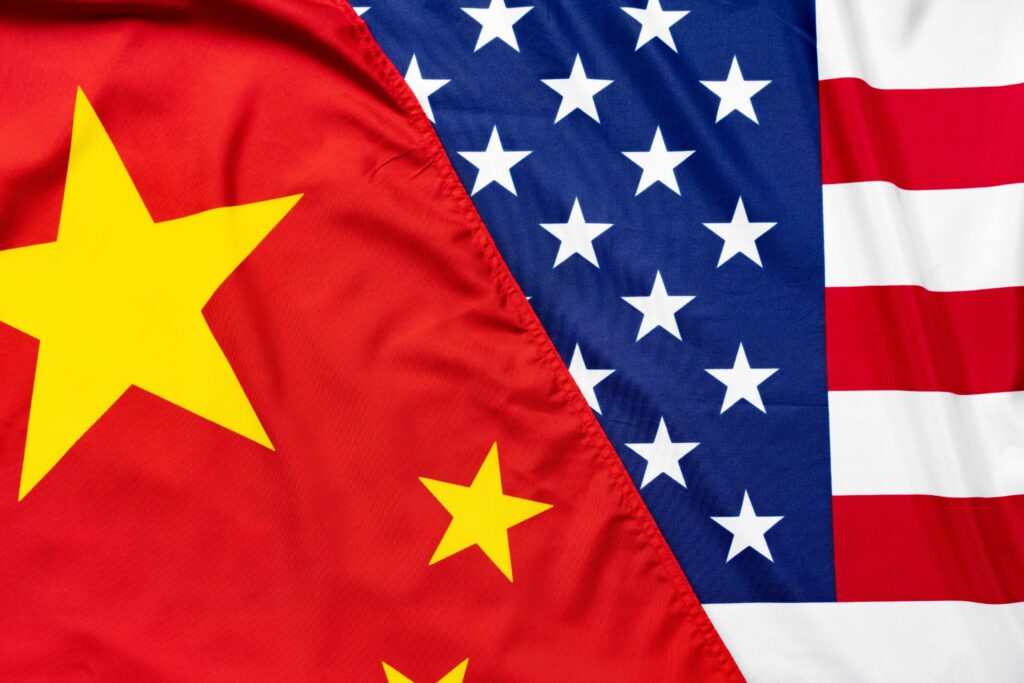
CES is in full swing in Las Vegas, and there are reports that some Chinese exhibitors have been denied U.S. visas to attend.
According to the South China Morning Post, about 1,300 Chinese companies are participating in CES, according to a list on the CES website, which is less than the record 1,551 Chinese exhibitors in 2018.
The Consumer Technology Association (CTA), which owns and hosts CES, would not confirm the number of exhibitors from China: “We do not provide country-specific exhibitor details,” it said. The CES spokesperson went on to say, “While we do not have any influence over the visa process, the CTA encourages the U.S. government to expedite and approve visas for individuals traveling to the United States for legitimate business reasons.”
Tori Emerson Barnes, executive vice president of public affairs and policy for the U.S. Travel Association, said the visa challenges faced by some CES exhibitors are “disappointing and costly.”
“Global travelers are critical to our economic success. As a country, we should welcome an increasing number of international visitors for business, exhibitions, trade events and leisure travel,” said Barnes.
The State Department has made some progress, she said. But there is still much work to be done. “The Trump administration has a tremendous opportunity over the next decade to deliver major events to achieve this goal, reduce visa wait times, improve our visitor visa system and ultimately welcome millions of new visitors to the country,” said Barnes. U.S.
The Bureau of Consular Affairs emphasized the important economic role of Chinese tourists. It also reiterated its commitment to welcoming business travelers.
Visa applications are evaluated on a case-by-case basis by consular officers and determine whether the applicant is eligible for the visa under U.S. law.
“We urge the Chinese government to end the freeze on local employees in Beijing so that we can continue to maintain low appointment wait times,” a department spokesman said.
Consultants help with the visa process
Chris Pereira, founder and CEO of global consulting firm Impact, held a training program for Chinese companies planning to participate in CES last fall. Half of the participants had problems obtaining a U.S. visa. All those who reapplied were ultimately successful in obtaining their visas.
“However, some companies were initially rejected and decided not to reapply, which unfortunately resulted in their absence from the event,” he said.
Organizers should provide step-by-step guidance on the visa application process and encourage persistence if rejected. “This significantly reduces the risk of absence from work,” Pereira said. “Additionally, trade show organizers can advocate for a more streamlined business-focused visa application process, emphasizing the economic value these exhibitors bring to U.S. events and local economies.”
CES isn’t the only event affected
Visa challenges faced by Chinese tech workers are widespread and affect more than just CES. Anjia Nicolaidis, international marketing strategist at Freeman’s mdg, and her team have been assisting exhibition clients.
“From a geopolitical perspective, there are a lot of changes coming into 2025,” Nicolaidis said. “We expect we will see more trade shows, particularly in the technology, biotech and advanced manufacturing sectors. be affected, especially if it includes a high concentration of Chinese exhibitors.”
Explore solutions
What can event professionals do? “Increased communication about the importance of applying for visas as early as possible must become part of standard operating procedures,” Nicolaidis said.
There are ways to deal with visa risks. Employees of the company may participate if the company has a subsidiary in the market where the trade fair is held.
Also, apply for your visa as early as possible. Organizers must also be prepared to support applications with letters of invitation and confirmation of attendance.
Destination can also play a role. They often have the opportunity to expedite visa applications for key attendees by activating government channels.
Visas are a global issue
Kai Hattendorf, former CEO of UFI, said this is not just an American problem. “For example, organizers in Germany, one of the world’s three largest exhibition markets, are facing similar challenges, with exhibitors from many countries failing to obtain visa interviews on time. AUMA (Association of the German Trade Exhibition Industry) is promoting in the current campaign Digital visa process issues.
JWC President and CEO Jochen Witt agrees. “The visa process is often too long, causing Chinese exhibitors and visitors to cancel their trips to German exhibitions. In my opinion, the reason for this lies not with China, but with the foreign embassies in China, which do not seem to have enough manpower to respond in a timely manner. Process visa applications.
Ironically, Vinnie Polito, CEO of the Society of Independent Exhibition Organizers (SISO), was in China attending the China Convention and Exhibition International Cooperation Forum (CEFCO) in Tianjin when Skift Meetings contacted him. Visas are one of the issues on the agenda. “I do think we can manage it better and mitigate some of the bigger challenges,” Polito said.
Marsha Flanagan, president and CEO of the International Association of Exhibitions and Events (IAEE), came to China with him. Flanagan, who is also co-chair of the Exhibition and Convention Alliance (ECA), said one of the ECA’s 2025 public policy agenda items was to reduce visa waiting times while modernizing visa processing systems.
